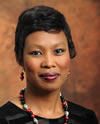By Deputy Minister Stella Ndabeni-Abrahams

The small town of Alice in the Eastern Cape is set to come alive this month as the University of Fort Hare celebrates its centenary. The town will be the destination for some of the continent’s most prominent political and business leaders. The event, which is set to take place on 20 May 2016, will see families whose ties with the university run through generations joining in the commemoration.
The university is the oldest historically black institution that attracted students from all over Africa. Its opening in 1916 gave hope to many black people and offered them the only opportunity to access higher education at a time when they had been denied admission to pre-dominantly white institutions.
The institution became a place where ideas about the independence of South Africa and Africa within the context of Pan Africanism were debated.
The ethos of debate within the institution fuelled a deep rooted culture of questioning the status quo even by students who initially were not interested in politics. It is not surprising that most former students went on to become strong opponents of any system that oppressed black people both in South Africa and throughout the African continent.
These include the likes of Sir Seretse Khama of Botswana, Julius Nyerere of Tanzania, Kenneth Kaunda of Zambia, Robert Mugabe of Zimbabwe, Joshua Nkomo of Zimbabwe, former President Nelson Mandela and Inkatha Freedom Party leader Dr Mangosuthu Buthelezi.
This year’s gathering provides a platform for the alumni to tell their stories of how the university helped serve their educational needs at the time when higher education was only for a select few. It is also an opportunity for them to reflect how studying at the university influenced and changed their lives for the better.
Every story from within the hallowed halls of Fort Hare tells of a journey and an awakening. But perhaps the story of Robert Sobukwe, who was once the most talked about and most luminary graduate from Fort Hare best personifies the power of the institution to push boundaries.
Sobukwe was a student leader at the university and became famous with powerful speeches he delivered as President of the Students' Representative Council.
His story and those of his contemporaries can inspire a new generation to take stock of the current situation and discover their mission in life. Franz Fanon has taught us that “each generation must, out of relative obscurity, discover its mission, fulfil it or betray it” and these words are still relevant today to the younger generation.
The celebration coincides with Africa Month to commemorate the founding of the Organisation of African Unity, now known as the African Union. We should therefore use the centenary to find solutions not only to challenges facing South Africa but to the African continent as a whole.
The younger generation should engage alumni who will be in attendance to share lessons and assess what still needs to be done to further improve the lives of our people. Alumni who include African leaders, eminent persons, business people and political leaders will attend the celebration.
No one can dispute that we have made huge strides as a country since attaining democracy in 1994. For instance, the doors of learning have also been opened to everyone in South Africa and our government has done a lot to improve access and the quality of higher education.
We should however also be mindful that despite all African countries having gained independence, the continent’s natural resources continue to benefit developed nations rather than its own people. Africans continues to struggle with basic needs such as food, water and electricity. There is a disjuncture between the wealth of Africa and the poor living conditions of its people and this has its roots firmly in colonialism.
This status quo needs to change and must be challenged by everyone especially the up and coming generation. It is imperative our leaders of tomorrow take the baton to bring about structural change. I have no doubt that this generation is up to the challenge and will use the centenary to learn from the esteemed alumni how best they could take forward the task of realising economic growth and development on the continent.
However, change is never easy or without challenges. The recent protests at the university over funding and other issues show that there is still a long way to go.
We respect and reaffirm the right of students to raise issues, but resorting to violence and destruction of property is never the answer. Let us all try to emulate the illustrious alumni of Fort Hare in cherishing the opportunity for education and passing the love of reading and learning to future generations.
The centenary is a significant milestone for the university and it will bring together friends, both old and new to celebrate their time at university. President Jacob Zuma will officiate over the ceremony and we encourage everyone to follow it on social media, and listen to or watch the address on television so that we can all move towards achieving the African dream of Pan-Africanism.
Stella Ndabeni-Abrahams is Deputy Minister of Communications.





